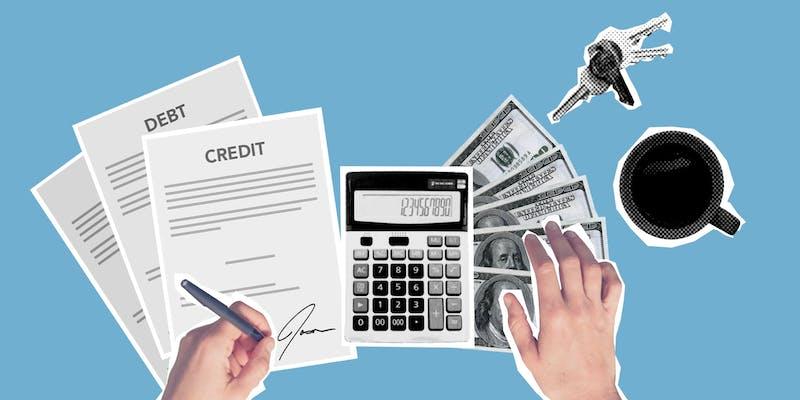Advertisement

Rick Novak Oct 30, 2024
What Is the Alternative Investment Market (AIM)?
91342

Rick Novak Aug 22, 2024
The Best Precious Metals ETFs 2023
52878

Kelly Walker Oct 02, 2024
Everything You Need to Know About Fee-Only Financial Advisors
12096

Kelly Walker Jan 16, 2025
The True Holders of Student Loan Debt
53493
Advertisement
The True Holders of Student Loan Debt
Jan 16, 2025 By Kelly Walker
As a borrower within the student loan system, the entity that owns your student debt is contingent upon the type of loan you have secured. The ownership may not always align with the servicing entity to which you remit payments.
For federal student loans, ownership is unequivocally linked to the U.S. Department of Education. This is not necessarily so for older loans, and in the realm of private student loans, the servicer and owner of the student debt may either be the same or divergent entities.
The U.S. government distinctly owns federal student loans, while private student loans fall under the ownership of the respective financial entities that issued them. The landscape of student loan ownership and how one may ascertain the owner of their specific student debt is complex.
Ownership of Student Loans
Ownership of student loans typically lies with either governmental bodies or financial institutions. The journey of a student loan from origination to ownership can involve a myriad of entities: a loan may be originated by one entity, owned by another, and guaranteed by a third party while potentially serviced by additional agencies. The service manages billing and payment collection and is the primary point of contact for borrowers regarding queries and concerns. Thus, pinpointing the exact owner of your student debt can become challenging, especially if the loan undergoes refinancing.
The owner of a student loan is determined by the type of loan secured; however, federal student loans often have a connection to the government, whether through origination or backing. Types of federal student loans encompass Direct Loans, Perkins Loans, and Federal Family Education Loans. It is noteworthy, however, that private companies can also hold national student loan debt.
Student loan debt is commonly originated by substantial institutions like significant banks or directly by the federal government. Once a student loan is originated, it transforms into a marketable asset—banks may sell this student debt to another entity, which adjusts their capital ratio favorably, thus enabling them to dispense further loans.
Non-Government Owners
The ownership of student debt that does not fall under government purview typically resides with the original lending institution or third-party loan servicing entities. Originators and these third parties may conduct their collections or delegate this responsibility to external collection agencies. Key players in the private sector of student loans include entities such as SoFi Technologies, Discover Financial Services, and Navient, which manage a considerable volume of student debt.
Additionally, several student loans are held by agencies like Sallie Mae or private companies such as NelNet Inc. that operate with the Department of Education, underscoring a complex network of relationships within student debt.
The Federal Government as a Creditor

Student debt is rising continuously, making student loan debt relief important. The U.S. student loan debt exceeded $1.7 trillion in the fourth quarter of 2022, with federal student loans accounting for most of it, highlighting the government's broad position as a creditor.
Previously, federal student loans were primarily originated by private lenders and guaranteed by the federal government, leaving taxpayers responsible in default cases. According to the Congressional Budget Office's 2010 estimates, 55% of student loans were once in this category, but today, this figure stands closer to 93%.
Historically, the federal government's ownership of student loans was nonexistent despite guaranteeing loans since at least 1965. By 2020, federal student loans accounted for nearly 20% of all assets held by the U.S. government, signifying a robust commitment to managing student debt and offering student loan debt relief.
Finding Out the Owner of Your Student Loan
A few aggressive procedures are needed to identify your student loan owner. First, check your credit report from Equifax, Experian, or TransUnion to find out who handles your student loan. These reports typically document your current loan servicer.
Your school's financial assistance department can also reveal student debt ownership. The U.S. Department of Education's Federal Student Aid website provides comprehensive federal student loan information. After becoming the owner of your student loan, update your contact information and examine student loan debt relief programs like income-driven repayment plans.
Can You Change Who Owns Your Student Loan?

Changing your student loan owner or servicer is doable, but you must understand the consequences. You can start this change:
From One Federal Loan Servicer to Another
Federal student loans offer the option to consolidate your loans under a different federal servicer through the Direct Loan Consolidation program. This applies even to loans under the FFEL program. Should you engage with the Public Service Loan Forgiveness program, your loans will then be overseen by MOHELA, the servicer appointed to manage this specific program.
From Federal to Private Student Loans
For borrowers with solid credit and stable income, refinancing federal student loans with a private lender might secure a lower interest rate and additional benefits. However, it's essential to recognize that this transition means forfeiting federal student loan debt relief options and benefits, which must be carefully weighed against the potential refinancing advantages.
From Private to Federal Student Loans
It is not feasible to transform private student loans into federal student loans.
From One Private Lender to Another
Refinancing your private student loans with a new private lender can be a strategic move. Since private student loans lack federal benefits, refinancing is generally less consequential and beneficial, mainly if it results in more favorable terms.
Before any transition, it is crucial to grasp the process thoroughly and the potential pros and cons, considering the impact it may have on both your short-term and long-term financial health.
The Bottom Line
Understanding who holds your student loan is vital for maintaining good standing and fully accessing available benefits and student loan debt relief programs. To discover the owner of your student debt, initiating contact with your school's financial aid office and referencing the Federal Student Aid site are advisable first steps.

Rick Novak Jan 11, 2025
What Are Nonpassive Income and Losses?
73048

Rick Novak Aug 24, 2024
Buying a House With a Friend as an Investment: Common Issues
22530

Kelly Walker Aug 29, 2024
Top Life Insurance Companies for Children
99256

Kelly Walker Sep 08, 2024
The Top 3 Hotel REITs
87059

Kelly Walker Oct 23, 2024
Top 12 Recurring Billing Software in 2023 for Seamless Transactions
24175

Rick Novak Nov 05, 2024
Land Your Dream Job: Steps to Become a Private Equity Associate
21562

Kelly Walker Sep 28, 2024
What Is a Balanced Fund?
10827

Kelly Walker Sep 11, 2024
American Express Personal Loans: An Overview
93908